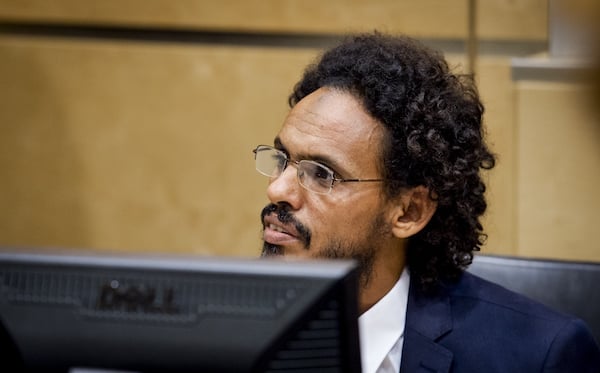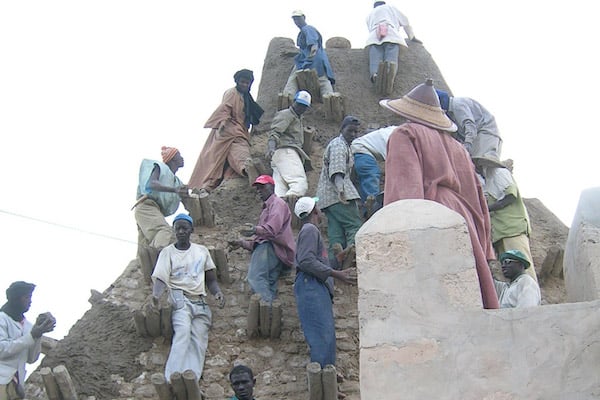Art World
Landmark Cultural Destruction Trial Opens in the Hague
Is the fight against cultural crimes entering a new phase?

Is the fight against cultural crimes entering a new phase?

Lorena Muñoz-Alonso

The International Criminal Court (ICC) in the Hague today opened its first ever war crimes trial addressing the destruction of cultural heritage.
The Malian jihadi leader Ahmad al-Faqi al-Mahdi stands accused of destroying ancient mausoleums in Timbuktu—including medieval shrines, tombs of Sufi saints, and a 15th century mosque, which were all part of a Unesco World Heritage Site—during the Islamist takeover of Northern Mali in 2012. The mausoleums are currently being rebuilt.
According to the Guardian, Faqi, a local ethnic Tuareg, is said to have been a member of the Islamist group Ansar Dine, as well as the head of Hesbah, which consider the mausoleums, erected as a tribute to deceased saints, to be blasphemous.
In early 2013, Ansar Dine was expelled from the city during a French-led military campaign. As well as the flattened mausoleums, over 4,000 ancient manuscripts were also lost or destroyed during that period.
Faqi was arrested in neighboring Niger and sent to the Netherlands last September, a transfer that chief prosecutor Fatou Bensouda celebrated, declaring that the people of Mali “deserve justice for the attacks against their cities, their beliefs and their communities.”
“The charges we have brought against Ahmad al-Faqi al-Mahdi involve most serious crimes,” Bensouda said then. “They are about the destruction of irreplaceable historic monuments, and they are about a callous assault on the dignity and identity of entire populations, and their religious and historical roots.”

Local workers on the reconstruction site in Timbuktu.
Photo via: UN News Center.
According to Deutsche Welle, this landmark trial could set a precedent in the fight against war crimes of destruction of cultural heritage. The last time such case has been brought to trial was when Balkan warlords were charged, in 2013, with shelling Dubrovnik in the early 1990s and damaging the ancient Mostar bridge and the Sarajevo national library by the international criminal tribunal for the former Yugoslavia. Since then, those who committed crimes related to the destruction of historical and cultural sites have escaped punishment for the most part.
As the Guardian lists, no Taliban or al-Qaida leader was charged with the destruction of the sixth-century Bamiyan Buddhas in Afghanistan, dynamited in 2001; the Khmer Rouge genocide trials did not address the looting of Cambodia’s Hindu temples. Likewise, no ISIS leaders have been indicted for the destruction of the Assyrian statues from Nineveh or the iconic ruins in Palmyra.
“Politically, there will be those who will question why Bensouda is focusing on ancient sites rather than going after rape, torture, and murder convictions, but destruction of cultural heritage is not a second-rate crime,” Mark Ellis, chief executive of the International Bar Association told the Guardian. “It’s part of an atrocity to erase a people. I hope it will act as a deterrent to similar acts in other countries,” he added.
The exercise of legal authority for monument destruction prosecutions stems from a 1954 convention signed after the WWII. Ratified by over 125 states, the convention covers architectural monuments, archaeological sites, artworks, manuscripts, books, cultural objects, and scientific collections.